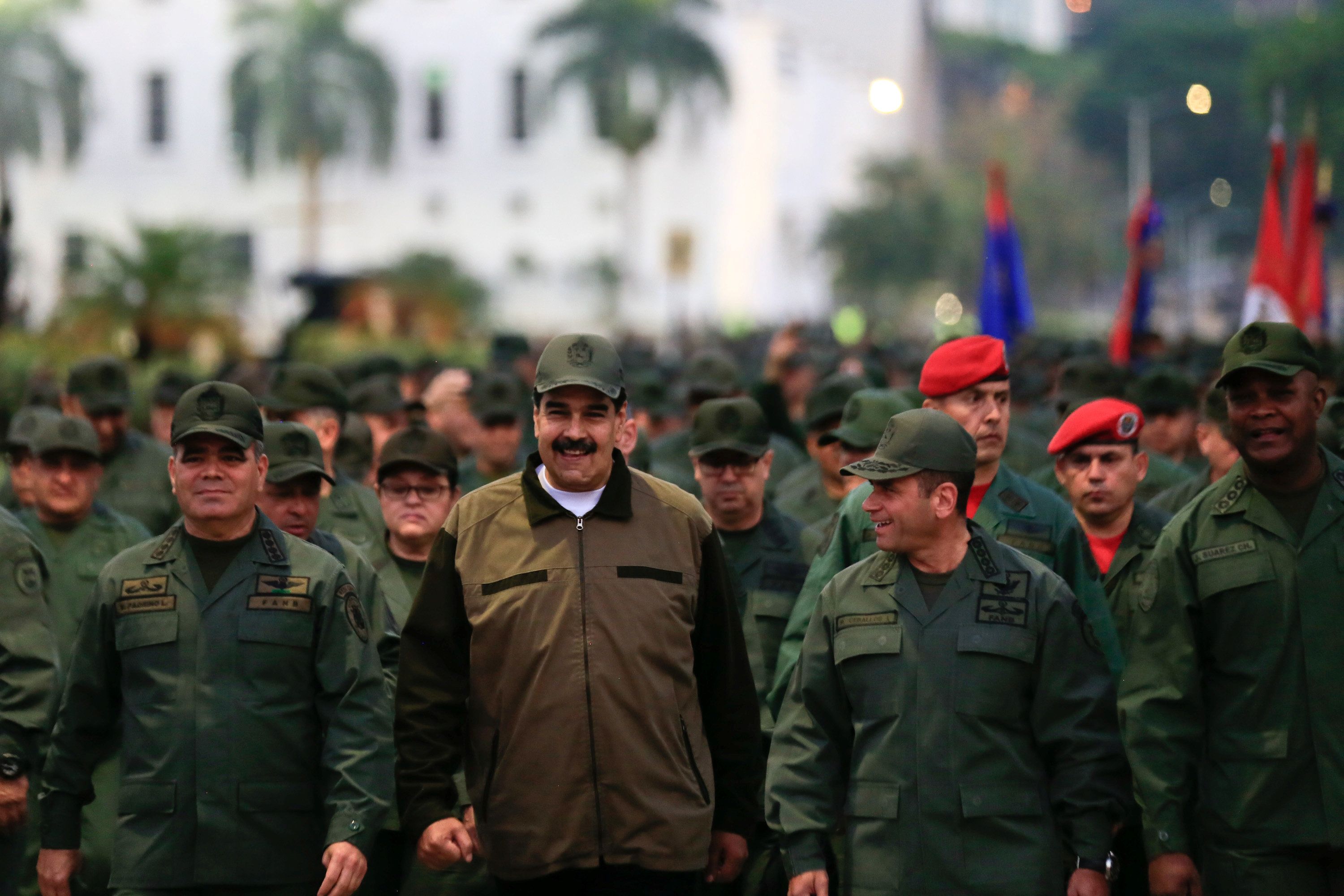May 03, 2019
Venezuelan opposition leader Juan Guaidó's dramatic bid to unseat President Nicolás Maduro earlier this week failed. But as we head into the weekend, neither man is as strong as his supporters hope, nor as weak as his opponents think.
Here are the big lessons from this week.
Maduro survived the biggest single challenge to his rule since he took power six years ago. Defections from the military were minimal, and no high-level figures bolted on him. Furthermore, while repression by the military was firm, he avoided turning the day into a bloodbath that could have galvanized more forceful internal or external pressure.
And yet he still has several challenges to deal with. First, a rogue faction within his domestic security services appeared to have freed a major opposition figure, suggesting that loyalty to him is more fragile than it seems. And the fact that it took him 12 hours to appear on TV to assert control also wasn't a great sign. Second, Washington's claims that top members of the military were in talks with the US about ousting Maduro will – even if unverified – sow discord and suspicion within Maduro's inner circle. And third, Venezuela is still suffering the worst peacetime economic collapse of any country in living memory. Maduro (still) doesn't seem to have a plan in sight to fix that.
Guaidó, for his part, failed in his biggest bid yet to unseat Maduro. Whether because of poor planning, faulty intelligence, or a communications blunder, he was simply unable to muster a critical mass of anti-Maduro support, either on the streets or in the higher ranks of the military.
But on the plus side, he is still a free man. Not only that: he is a free man who still enjoys credibility not only on the streets but with foreign governments, more than 50 of which still recognize him as the rightful president of Venezuela.
That's not nothing. But the challenge, after Tuesday's stumble, is that he's increasingly hard pressed to keep both the optics and the momentum moving in his favor.
Meanwhile, in Finland: The top diplomats from Russia, which backs Maduro, and the United States, which backs Guaidó, may have a tete-a-tete Monday on the sidelines of a meeting of Arctic powers. You can bet Venezuela will top their agenda: Secretary of State Pompeo claims Russian pressure is the only thing that kept Maduro from fleeing to Havana this week, while Foreign Minister Lavrov has warned the US to stop meddling in Venezuela. Sparks may fly!More For You
America’s new National Security Strategy confirms what Europeans have feared for months: Washington now sees a strong, unified European Union as a problem to be solved, not an ally to be supported.
Most Popular
Sponsored posts
The power of sports
What's Good Wednesdays
What’s Good Wednesdays™, December 10, 2025
Walmart sponsored posts
Walmart's $350 billion commitment to American jobs
In this episode of Tools and Weapons, Microsoft Vice Chair and President Brad Smith sits down with Ed Policy, President and CEO of the Green Bay Packers, to discuss how purpose-driven leadership and innovation are shaping the future of one of the world’s most iconic sports franchises. Ed shares how technology and community-focused initiatives, from Titletown Tech to health and safety innovations on the field, are transforming not just the game of football, but the economy and culture of Green Bay itself. He explains how combining strategic vision with investment in local startups is keeping talent in the Midwest and creating opportunities that extend far beyond Lambeau Field.
Subscribe and find new episodes monthly, wherever you listen to podcasts.
Members of security forces stand guard outside a polliong station, a week late in a special election, after the local governing party kept voting closed on election day, amid accusations of sabotage and fraud, in a presidential race still too close to call as counting continues, in San Antonio de Flores, Honduras, December 7, 2025.
REUTERS/Leonel Estrada
More than a week after Hondurans cast their ballots in a presidential election, the country is still stuck in a potentially-dangerous post-election fog.
© 2025 GZERO Media. All Rights Reserved | A Eurasia Group media company.
